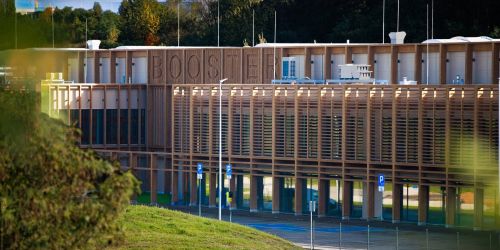Recently you took on the position of operations director for the Polish Chamber of Commercial Real Estate (PINK). Is this a big change from working for the Polish Association of Developers? How have your first few weeks been in a new organisation?
Ewa Andrzejewska, operations director, Polish Chamber of Commercial Real Estate: It’s still too early to sum up my first 100 days – it’s only been a few weeks since I took up this new challenge. One thing I can say for sure – and I don’t think this is going to change – it’s interesting and a lot is happening. PINK was founded in 2016. The sector then came together over tax issues and the need for dialogue with the government. Since that time the association has evolved and today, as well as monitoring the latest legislation and advising the government over changes to the law, we are a partner that supports lawmakers with our knowledge and wide experience of the sector. Added to this is the knowledge


























































